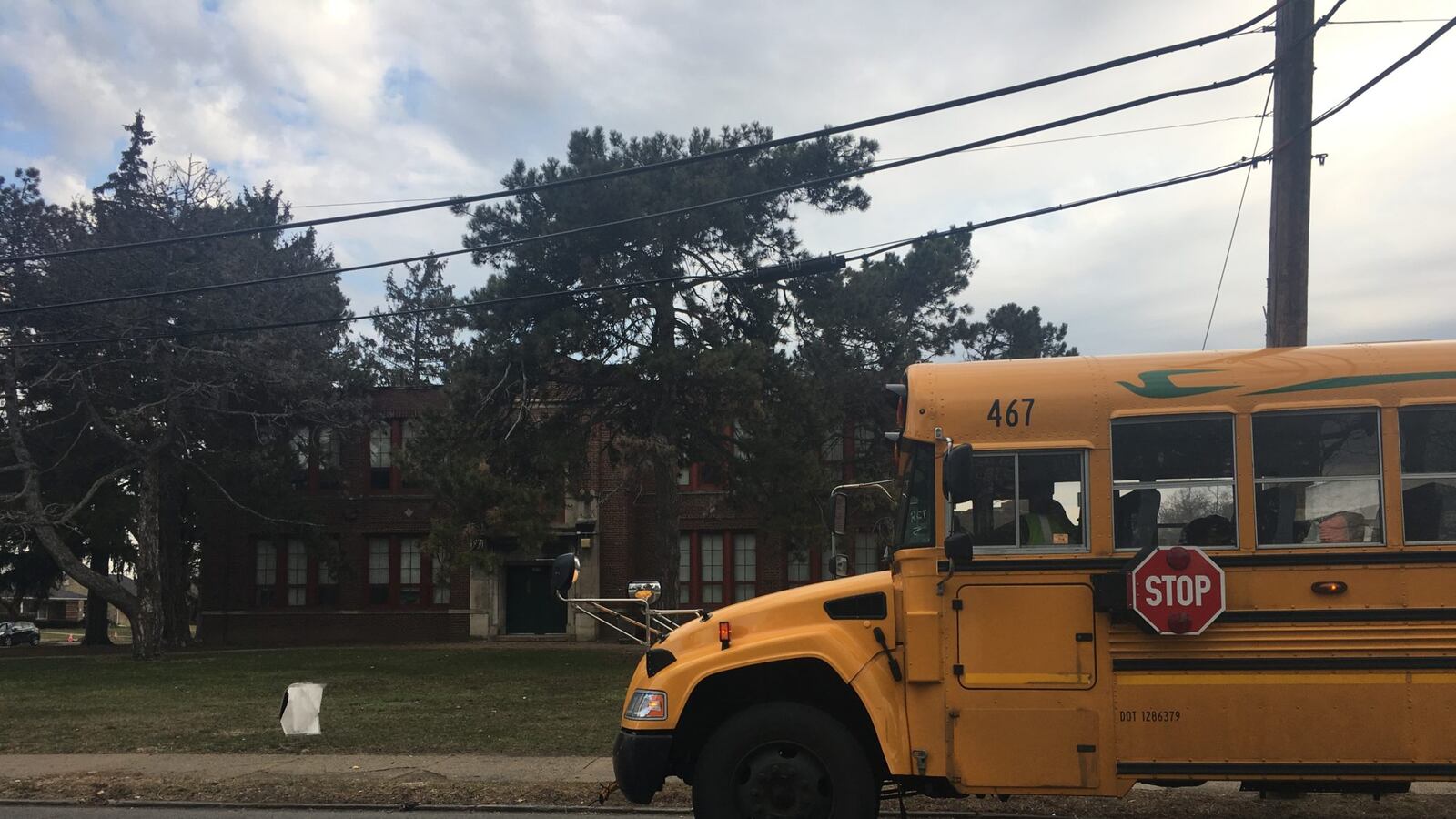When the time comes to repair school buildings, most districts in Michigan put a tax increase the ballot, effectively asking voters to back a loan that covers the cost of construction. But that’s not an option for the Detroit Public Schools Community District. Which is why, faced with a $500 million bill to fix its crumbling schools, the Detroit school board is gearing up to evaluate an unusual array of solutions — from raising the sales tax to moving students into schools built and owned by private developers.
Superintendent Nikolai Vitti’s administration on Saturday presented a document listing six possible ideas for solving the district’s infrastructure woes. District officials noted that the document is merely a sketch of a detailed plan that will be released in November.
“I wouldn’t advise looking at that list and seeing it as comprehensive,” said Sonya Mays, a school board member who runs a nonprofit development company in the city.
Mays has been tapped to lead the planning effort, which will involve district representatives and a still-undetermined group of people from outside the district with experience in development and construction. That experience could bring about ideas that aren’t on the list of options presented to the school board on Saturday.
“The work plan is meant to be a comprehensive plan of attack,” Mays said. She explained that it would include both a fundraising plan and a list of infrastructure priorities that will consider factors like the projected growth of a neighborhood and whether there are other district schools nearby.
Iris Taylor, the board chair, asked for a plan within three months of the group’s still-unscheduled first meeting because the cost of renovating schools in the district will rise until the renovations are complete. If nothing is done, schools will continue to deteriorate and the cost of fixing them will double to more than $1 billion within five years, according to a report commissioned by the district.
A $617 million deal with state lawmakers that fended off a looming schools bankruptcy in 2016 forbids the district from taking on major new debts. The $617 million included $25 million for school renovations, but much of that money is already committed to pressing problems like a leaky roof that closed Palmer Park Preparatory Academy for months.
The deal split the state’s largest district in two, with one part, called Detroit Public Schools, tasked only with paying off the debts accrued by the district after decades of declining enrollment. The other — called the Detroit Public Schools Community District — is responsible for 109 schools and some 50,000 students in the city, but it doesn’t have the fundraising powers of other school districts in the state.
Still, district leaders could ask state lawmakers to ease the debt restrictions, especially for repairs to schools in neighborhoods where there are no other district buildings, according to the list of possible options laid out in the school board document. In addition to raising sales taxes and working with private developments, the possible solutions set forth included contracting out heating and cooling services instead of purchasing new equipment outright. The district could also lobby for a “statewide increase in facility funding,” according to the document, suggesting that district officials do not plan to request state funding to address crumbling buildings in Detroit alone. And officials are considering tapping the district’s limited ability to raise taxpayer dollars, though that move would likely generate only $15 million.
Deborah Hunter-Harvill, a school board member, said it is too soon to predict which options the district will pursue.
“I believe that we’re going to do what we have to do to make this right for our kids,” she said. “There is so much work that needs to be finished.”


